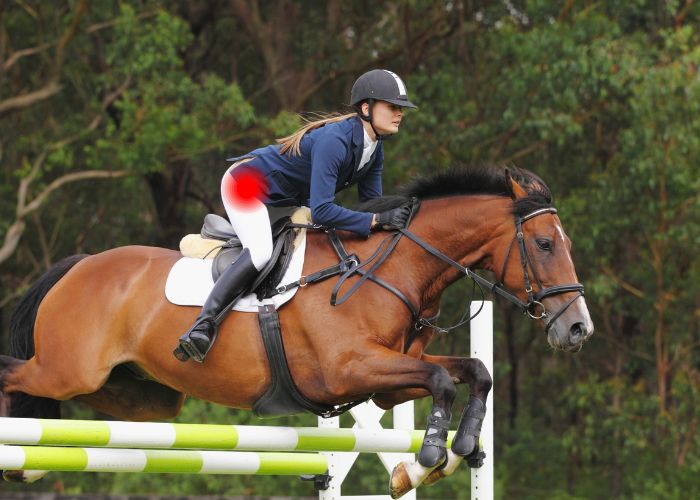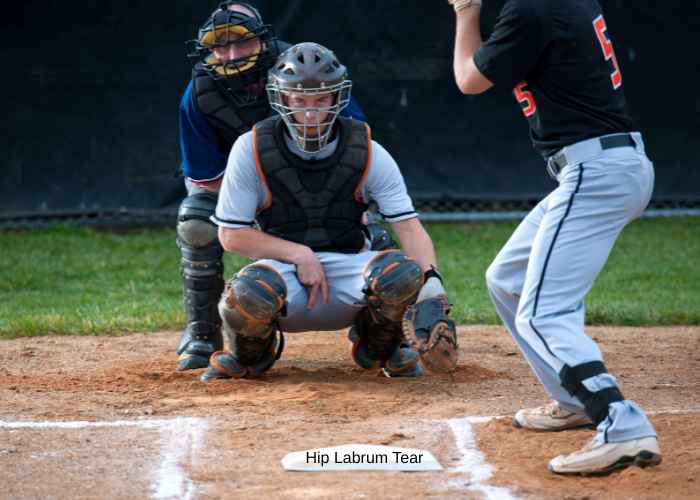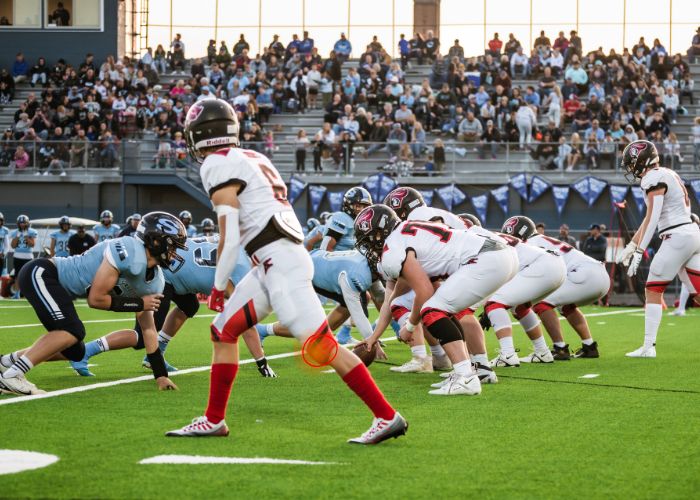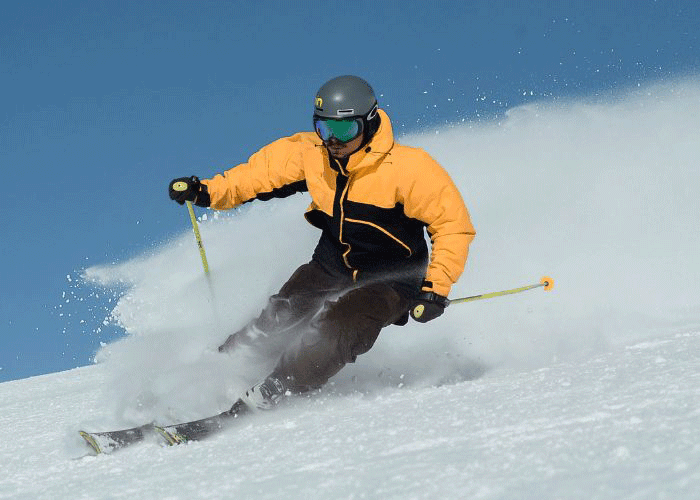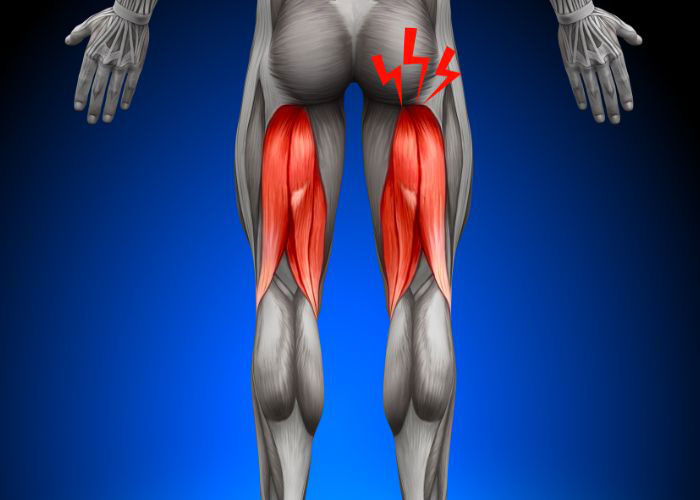Schedule an Appointment with a Rotator Cuff Specialist
If you believe you are suffering from an acute rotator cuff tear requiring an urgent appointment, we will do our best to provide a same-day or next business day appointment.
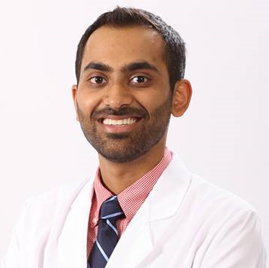
Have you experienced a sports-related injury or a fall that resulted in sharp shoulder pain and weakness? If so, you may be experiencing a rotator cuff injury. Tears and injuries to the rotator cuff can be treated in many ways to restore range of motion and reduce pain. Rotator cuff specialist, Doctor Ronak Mukesh Patel has experience diagnosing and treating patients in Houston, Sugar Land, and Pearland TX who have sustained a rotator cuff injury. Contact Dr. Patel’s team today!
What is a rotator cuff injury or tear?
Within the shoulder joint is a group of four muscles and tendons that cover the top portion of the humerus (upper arm). This muscle and tendon group, known as the rotator cuff, provides an incredible range of motion to the shoulder joint while keeping the humeral head firmly within the socket. However, this incredible flexibility can make the rotator cuff susceptible to injury. Damage or a tear to the rotator cuff can occur from a sports-related injury, bracing a fall on an outstretched hand, or tendon deterioration as a result of natural aging. Rotator cuff injuries can range from mild tendon inflammation to partial or complete severing of the tendons from their attachment site. The tendons are known to weaken after being damaged in a rotator cuff injury, and so normal daily activities, such as getting dressed or brushing hair, can become painful or difficult to perform if left untreated. Dr. Ronak Mukesh Patel, orthopedic shoulder specialist serving patients in Sugar Land, Pearland, and the Houston, Texas area, has the knowledge and understanding, as well as substantial experience in treating patients who have experienced a rotator cuff injury.
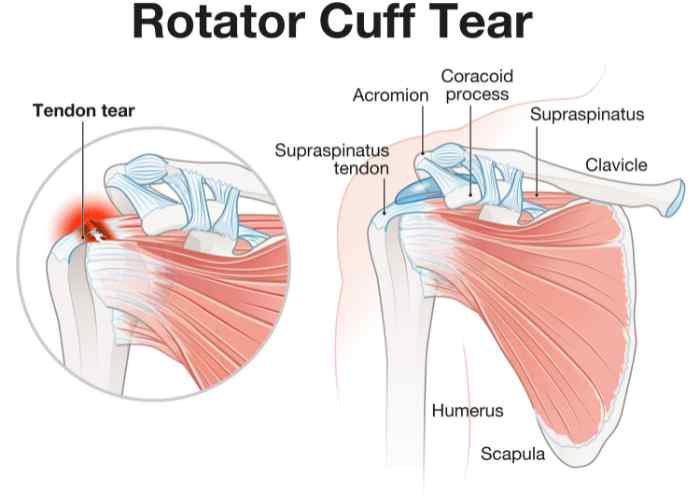
What are the symptoms of a rotator cuff injury or tear?
A common complaint of a rotator cuff injury or tear is shoulder joint pain. This pain can begin immediately following an injury or may occur gradually due to the natural aging process. Other common symptoms of a rotator cuff injury include:
- Sharp pain with activities involving reaching overhead or behind the back
- Shoulder weakness
- Radiating pain from the affected shoulder into the upper arm
- Pain that worsens at night, especially with sleeping on the affected shoulder
How is a rotator cuff injury diagnosed?
Dr. Patel will obtain a comprehensive medical history to include the initial injury or history of shoulder conditions. A thorough physical examination is then performed by Dr. Patel that can involve certain shoulder tests to support a rotator cuff injury diagnosis. Diagnostic imaging may be requested as well. X-rays can determine if any bone-related injuries, such as a fracture, resulted as part of the rotator cuff injury and assess for osteoarthritis. Magnetic resonance imaging (MRI) can identify any damage to the other structures of the shoulder joint. Dr. Patel may also request an imaging study, known as an arthrogram, that uses injected dye to help visualize structures inside the joint such as the labrum.
What is the treatment for a rotator cuff injury or tear?
Non-surgical treatment:
Rotator cuff injuries that resulted in minimal damage of the tendons are often successfully treated with non-surgical therapies alone. A sling, or other device, may be applied for shoulder joint immobilization to decrease tendon inflammation and eliminate overhead motions that might result in further damage to the tendons. Pain and inflammation can also be managed with a combination of rest, ice, and non-steroidal anti-inflammatory medications (NSAIDs). When appropriate, a physical rehabilitation program will be prescribed by Dr. Patel to strengthen the muscles and tendons of the rotator cuff.
Surgical treatment:
If a patient experiences a complete rotator cuff tendon tear, damage to the rotator cuff is extensive or complex, or in the event of failed non-surgical therapy, surgical intervention may be necessary. Dr. Patel may recommend a shoulder arthroscopy to properly repair the rotator cuff. This minimally invasive procedure uses a small camera to view the muscles, ligaments, and tendons of the shoulder, and any irregularities, such as tears or bone spurs, are excised and repaired with specialized surgical instruments. This arthroscopic surgical technique is preferred among surgeons and patients alike due to the small incisions and shorter recovery period.
